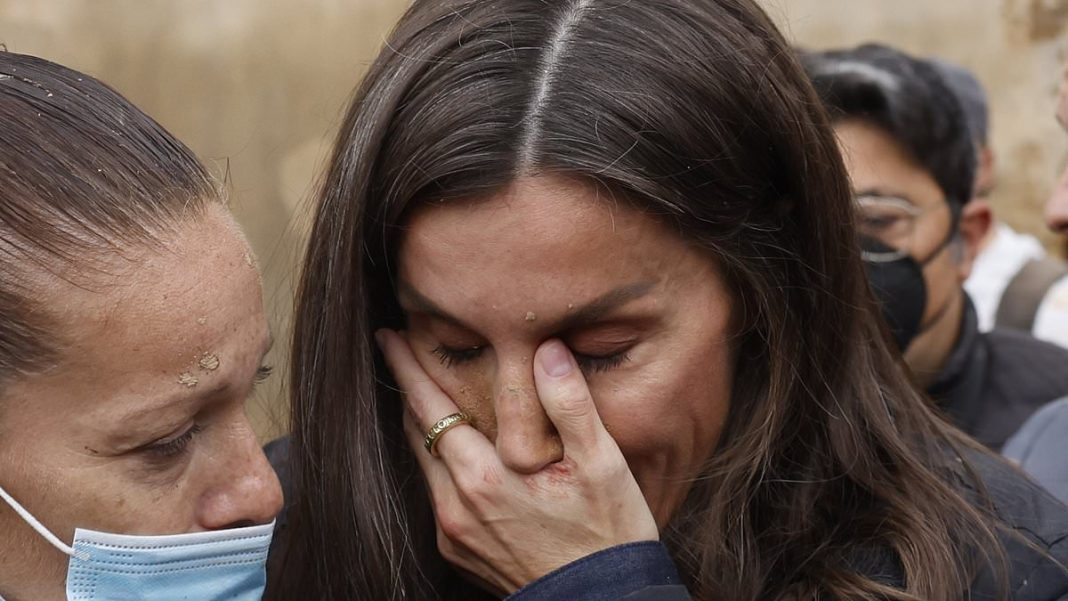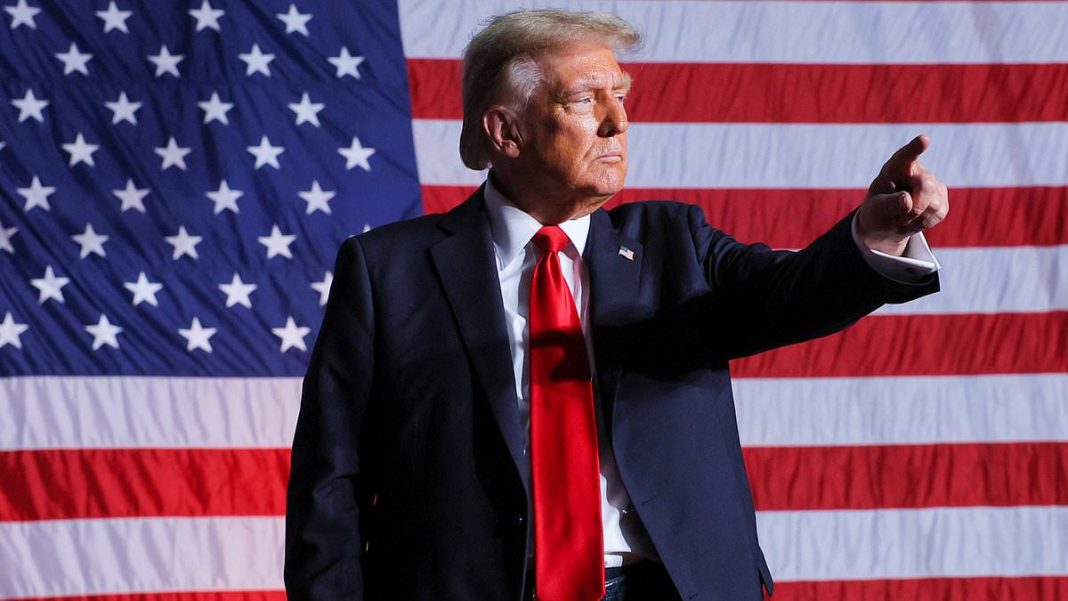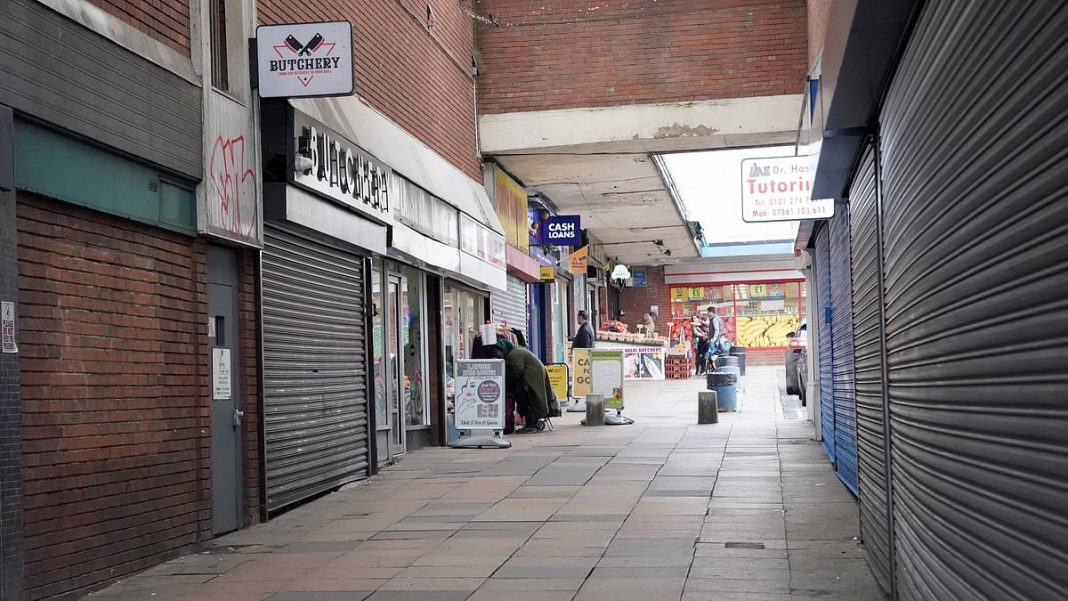Queen Letizia of Spain shed a tear as she met those affected by the flash floods today in Valencia.
The royal, 52, greeted Portuguese rescue squad members after she arrived to visit the control station for the floods in Paiporta, eastern Spain.
Over 200 people have died from Tuesday’s floods and hopes of finding survivors ebbed five days.
The town of Chiva was hit with nearly a year’s worth of rainfall in a single day. Torrents of muddy water wrecked towns and infrastructure in Spain’s worst such disaster in decades.
Letizia appeared to be crying as she spoke to a woman in Paiporta, with the Queen wrapping her hands around her shoulder.
Letizia’s tears also came after she was heckled by angry crowds, as she and her husband King Felipe were splattered with mud.
The mother-of-two looked solemn as she met the regional president of Valencia, Carlos Mazon, regional minister Pilar Bernabe and the Mayor of Paiporta, Maribel Albalat.
She visited a local command centre in Paiporta with Felipe, as they were pictured listening to Spanish Civil Guard speak about the areas most affected by the flash floods.
The royal couple travelled to Paiporta and Chiva – the two towns most affected by the torrential rainfall – to pay their respects to victims and give their condolences to those affected by the floods.
However, King Felipe was heckled and had mud thrown at him by furious locals during his visit.
The monarch was pelted with mud and objects like drink cans by angry survivors of the deadly floods as he walked through the muddy streets.
Hecklers also targeted Letizia, as pictures showed the Queen with mud on her face, as she was helped through the busy streets.
She was dressed in practical attire, donning a waterproof black jacket and a navy blouse which she tucked into skinny black trousers.
The mother-of-two wore her brown tresses down and paired her ensemble with a pair of comfortable trainers and silver stud earrings.
The crowd shouted insults at Felipe as well as government officials during the visit on Sunday, with police having to step in with officers on horseback to keep back the crowd of several dozens.
Almost all the deaths have been in the Valencia region, where thousands of security and emergency services frantically cleared debris and mud in the search for bodies.
Describing ‘the worst natural disaster in the recent history of our country,’ Prime Minister Pedro Sanchez said it was the second deadliest flood in Europe this century.
The government had accepted the Valencia region leader’s request for 5,000 more troops and informed Sanchez of a further deployment of 5,000 police and civil guards, the premier said.
Spain was carrying out its largest deployment of military and security force personnel in peacetime, he added.
Authorities in the Valencia region have restricted access to roads for two days to allow emergency services to carry out search, rescue and logistics operations more effectively.
With telephone and transport networks severely damaged, establishing a precise figure of missing people is difficult.
Sanchez said electricity had been restored to 94 percent of homes affected by power outages and that around half of the cut telephone lines had been repaired.
Some motorways have reopened but local and regional roads resembled a ‘Swiss cheese’, meaning certain places would probably remain inaccessible by land for weeks, Transport Minister Oscar Puente told El Pais daily.
Ordinary citizens carrying food, water and cleaning equipment continued their grassroots initiative to assist the recovery on Saturday.
Around 1,000 set off from the Mediterranean coastal city of Valencia towards nearby towns laid waste by the floods, an AFP journalist saw.
‘There’s nothing left,’ Mario Silvestre, a resident in the ruined town of Chiva, told AFP on seeing the damage.
‘Politicians promise a lot. Help will come when it comes,’ said the octogenarian.
Authorities have urged people to stay at home to avoid congestion on the roads that would hamper the work of emergency services.
Regional leader Carlos Mazon called the floods ‘the worst moment in our history’ on Saturday and laid out a series of proposals to help his region recover, ranging from infrastructure to economic support.









